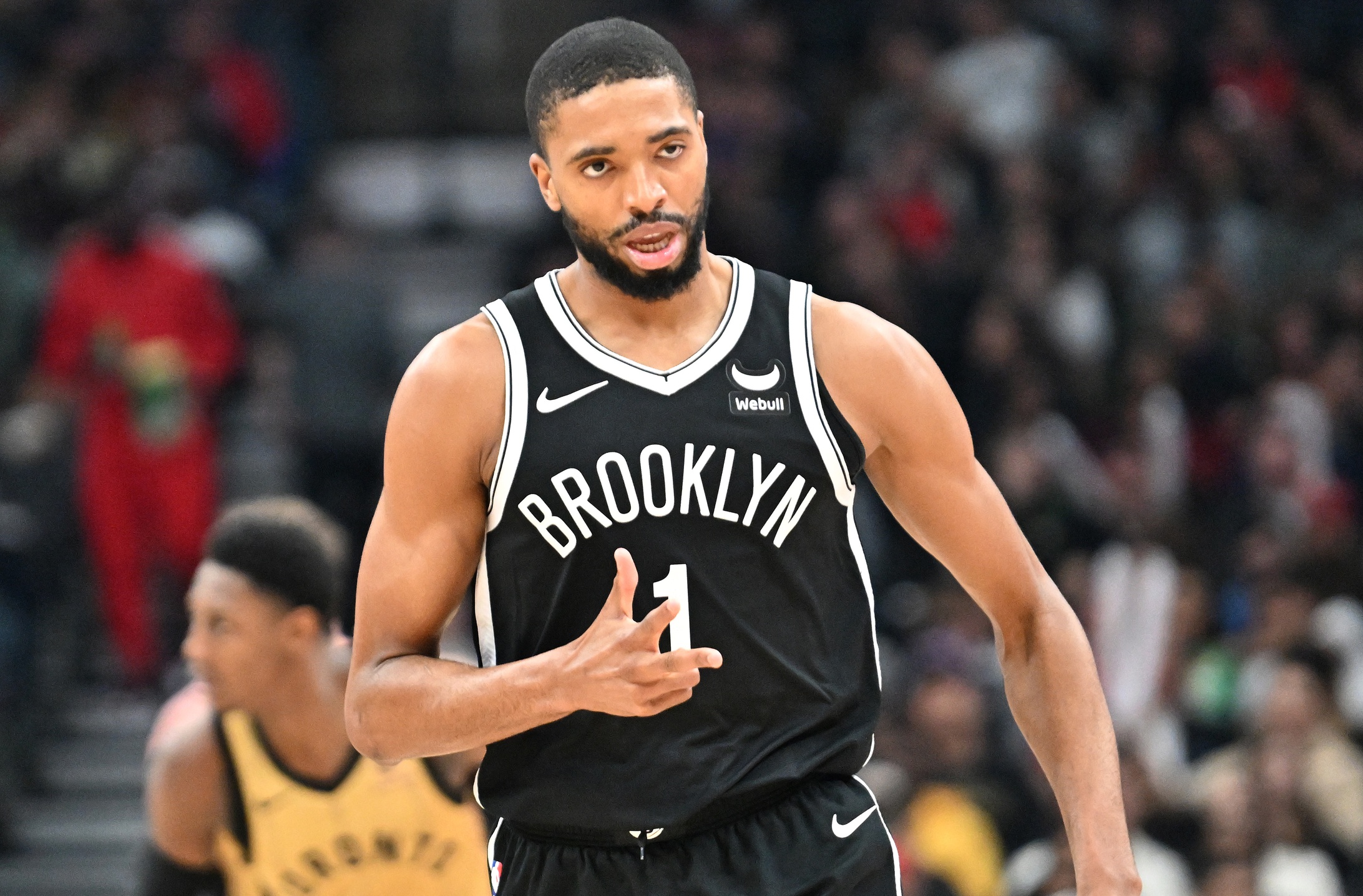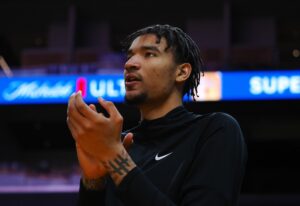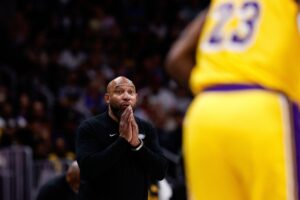With the NBA trade deadline come and gone, the fantasy basketball deadline is next. While the date has passed in some leagues, most occur in late February and March. Trading can be tricky, so here’s some advice.
Fantasy Basketball Trade Deadline Advice
Assess Strengths and Weaknesses
Before making a move, it’s crucial to understand your team’s strengths and weaknesses. First, know which categories you are strongest and lacking in and what positions you have too much of or need. Analyzing what stats you need is especially important in category leagues (per punting plans if you have one). But it also matters to an extent in points leagues, where certain categories, such as steals or blocks, are worth more. Positions matter in both leagues, as having too many or too few can impact lineups and force you to keep players on the bench. Maintaining some balance is crucial, and players with multi-position eligibility are bonuses.
Equally as important is knowing which categories and positions other managers are strong in and need. This helps increase the probability of them accepting a trade. Creating fair offers and avoiding low-balling also helps to develop realistic trades that managers are more willing to take.
Selling High and Buying Low
To maximize your return, take advantage of sell-high and buy-low opportunities. It’s hard to predict when these windows will close, but trades are generally made after a stretch of a few good or bad games.
When a player is overperforming and producing unsustainable numbers, it’s time to sell high. Conversely, when a player has regressed or is going through a slump, but you know they will bounce back, that’s the time to buy low and reap the benefits later.
However, some buy-low candidates are not worth trading for at this point in the season. For example, someone like Jaren Jackson Jr. is a buy-low because he is likely to have many rest days (and even a potential shutdown) near the end of the season due to the Memphis Grizzlies’ situation. If you’re looking for long-term value, a player like him will only hurt your team later (playoff time).
Look at the Playoff Schedule and Waiver Wire
Knowing your league’s playoff schedule is a significant factor in trading at this stage. Some teams have a busy schedule later in the season, while others only have a few games. Analyzing how it correlates to your playoffs helps maximize your games.
Likewise, fantasy basketball playoffs overlap with “silly season” in the NBA. This is when players start missing games, receiving minutes restrictions, or are shut down, and unlikely players on the waivers step into big roles and become hot adds. The players who typically experience more rest days are stars on top teams that have clinched a playoff spot and those on teams that are out of contention/embracing a tank. While it’s (mostly) difficult to predict “shutdown candidates” and when they will happen, it’s important not to get too caught up on it. Moreover, they don’t happen as often as one may think.
Instead, it’s beneficial to look at the waiver wire and ask yourself, “Which players will benefit the most if their teammate has rest days/are shut down?” This is the gold mine that can help win your league. Also, two-for-one trades can help free space for waiver wire adds.
Negotiate and Analyze
Always be open to negotiating. This helps ensure you get the best return to improve your team. Take the time to negotiate and field some offers and see how your team will be impacted before agreeing on a deal. Remember, in a sense, you are trying to sell your players to buy new ones, so think of it like a sales transaction.
Also, analyze the players you are receiving. Know what categories they are strong/weak in, how they’ve played this season, what factors you have to consider about their role on the team, and their rest-of-season value.
Sometimes You Don’t Have to Make a Trade
Sometimes, the best move is not making one at all. Of course, there is always room for team improvement. But, there are times fantasy managers get trigger-happy with trades near deadlines or feel compelled to make a move, leading to a bad deal.
Ultimately, it won’t do you any good to force a trade just for the sake of making one. Assess your team and others, think about how you can improve, look at the playoff schedule, and analyze how a trade would impact your team.
Keep in mind that there’s always a chance a trade just won’t work out. Part of fantasy is luck, and we can’t predict injuries, suspensions, or other circumstances. However, these tips will help to make trading easier and more effective.
Fantasy Basketball Trade Tools
Here are some tools to help make successful trades:






